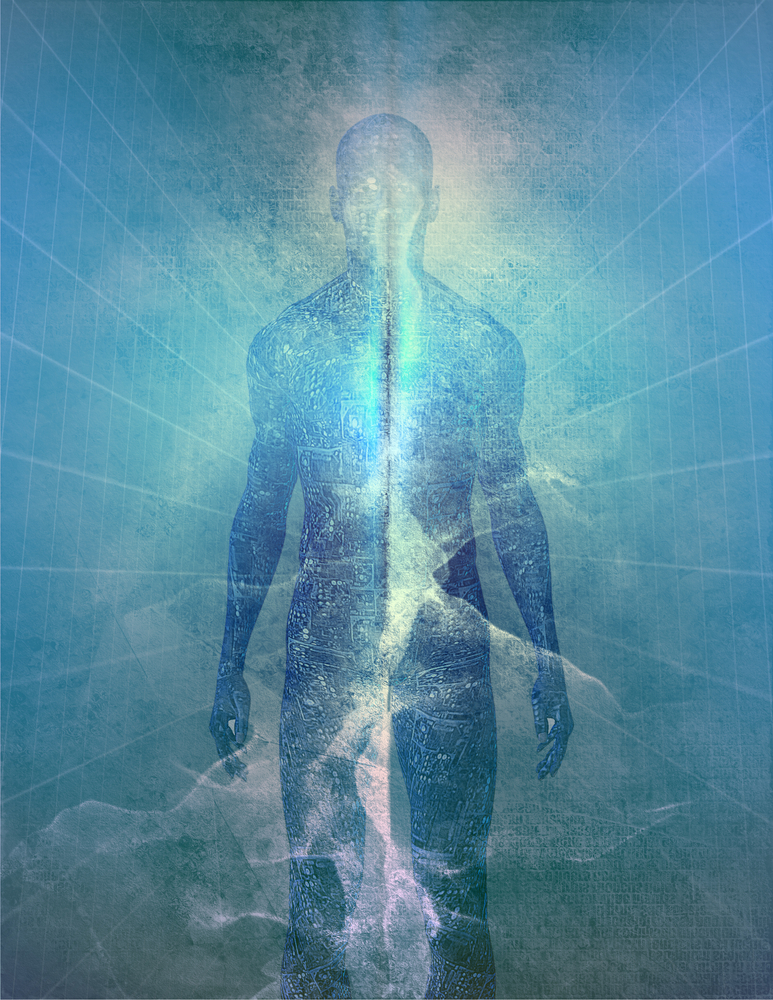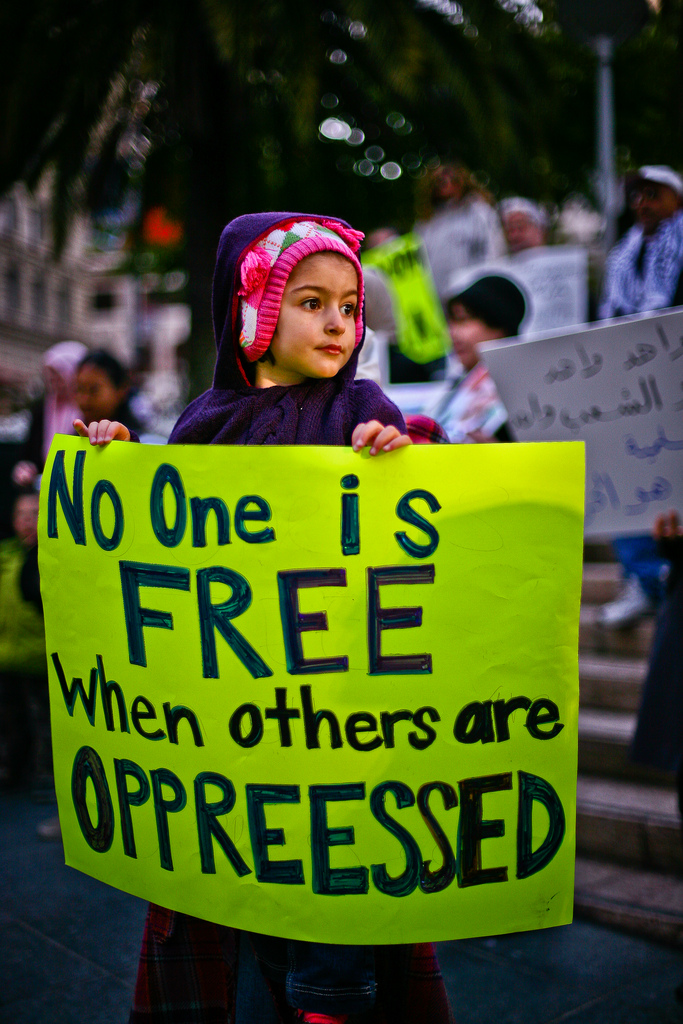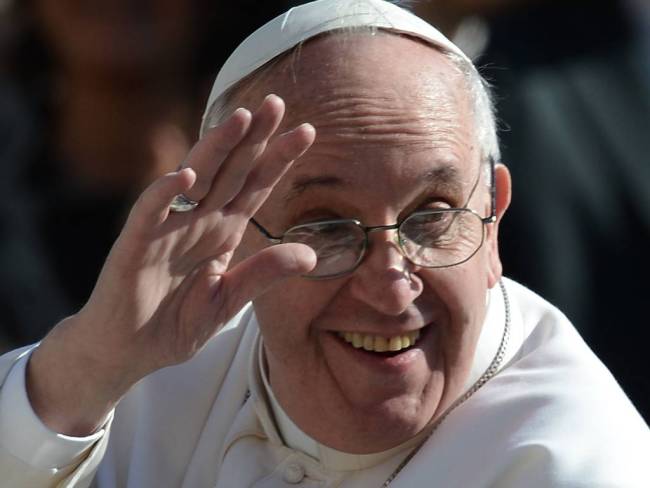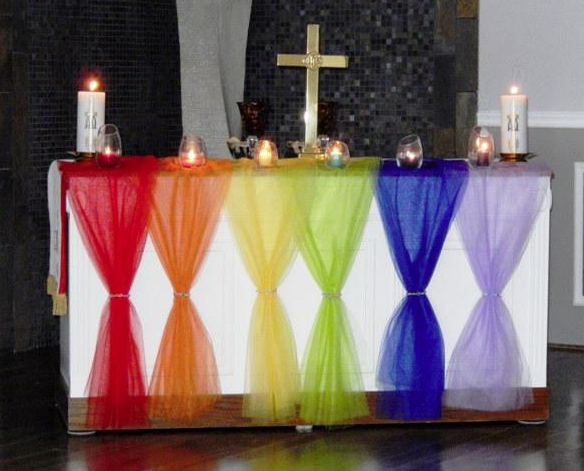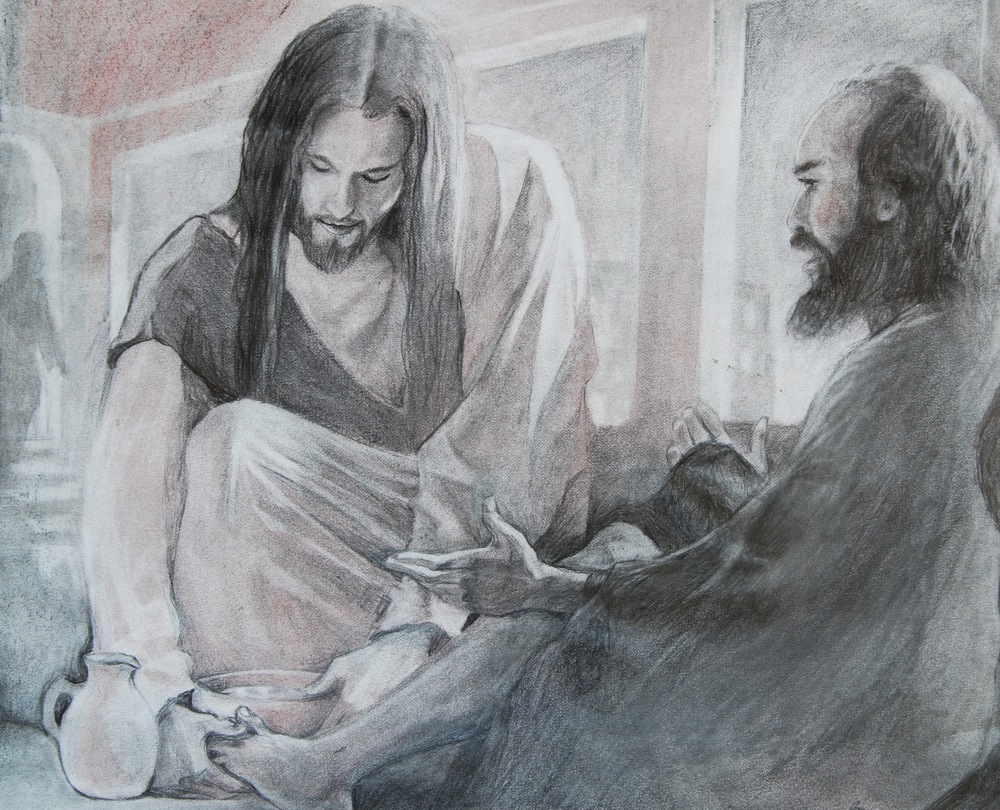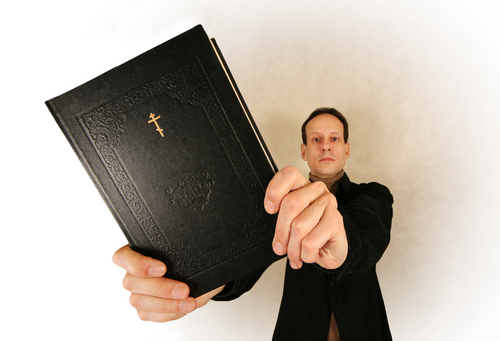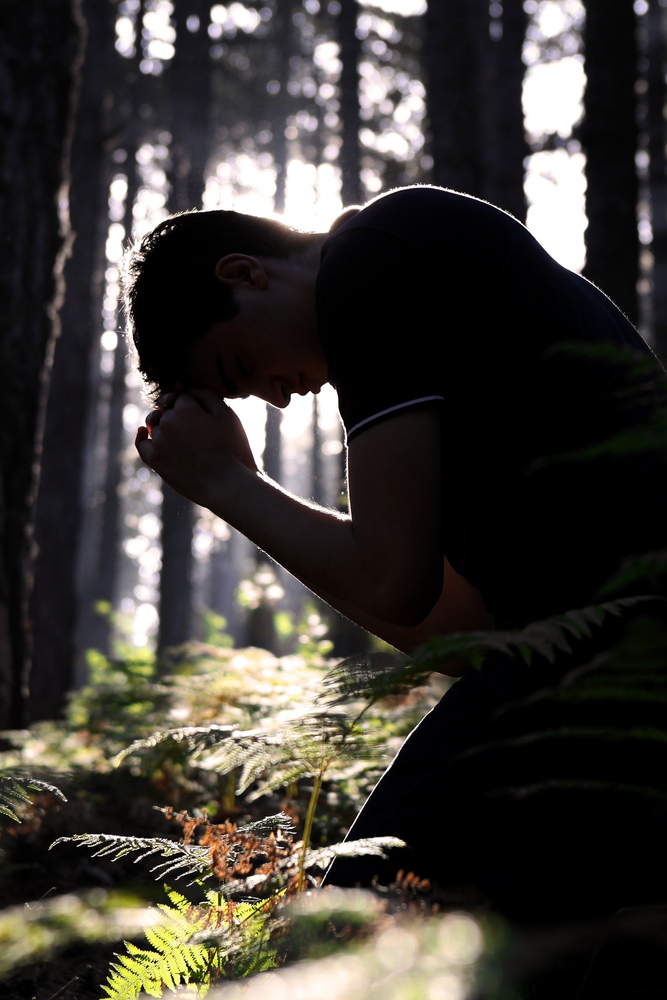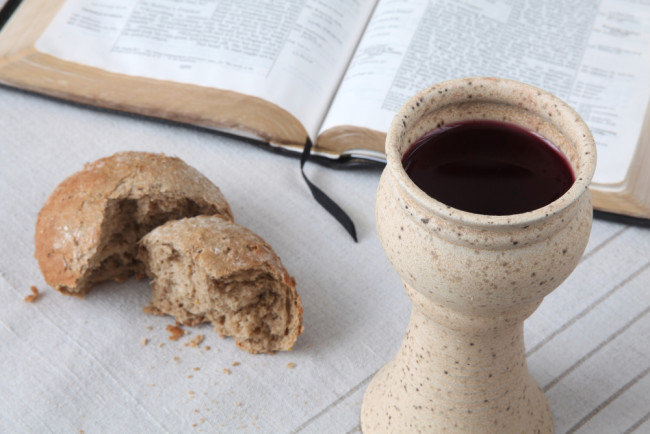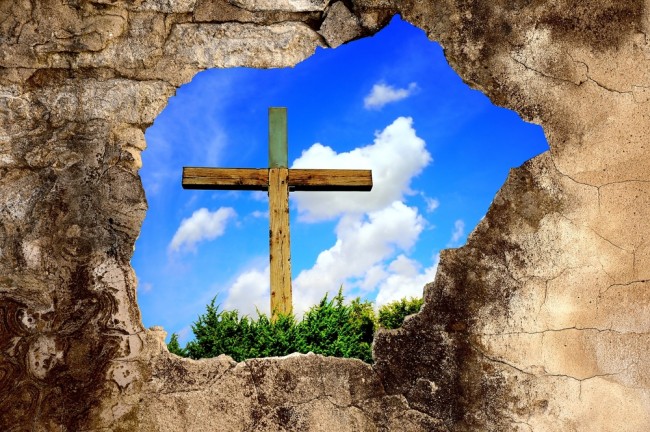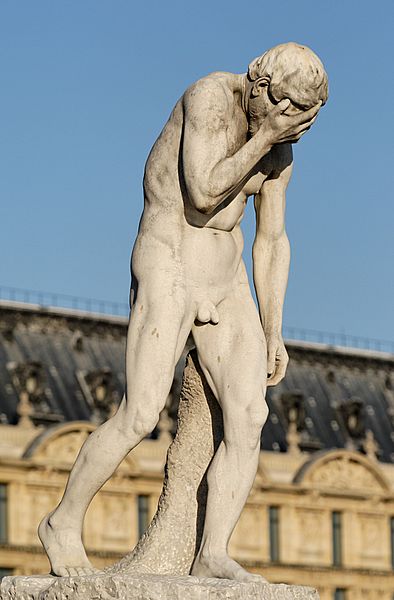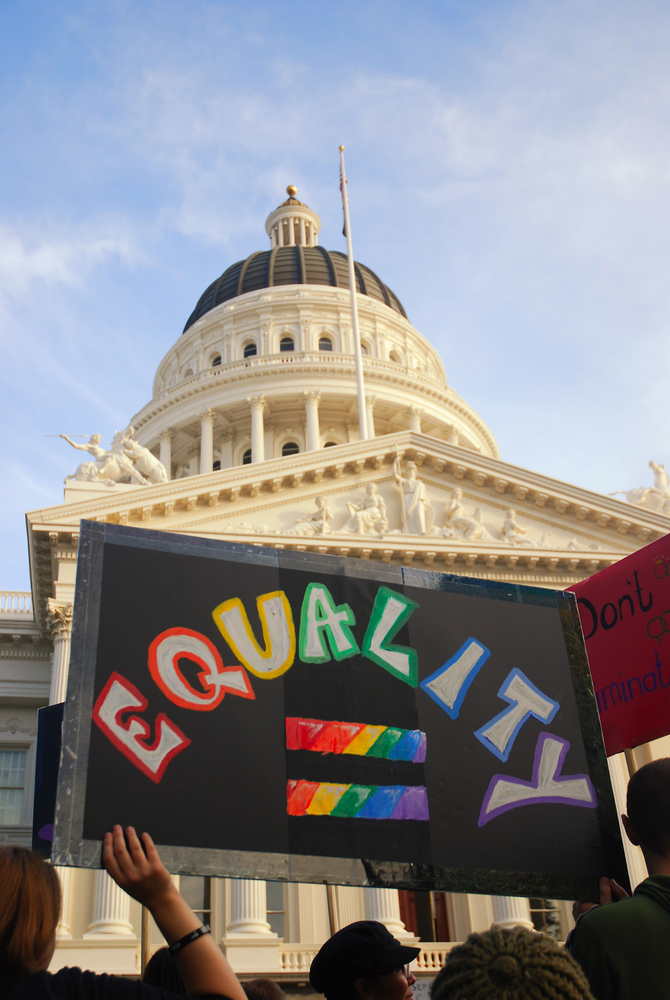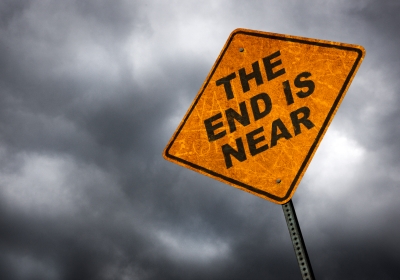In Romans 7:15, the Apostle Paul wrote, "For that which I do, I allow not: for what I would, that I do not; but what I hate, that do I." Many people have pondered over these verses, but everyone who has tried to break a bad habit knows exactly what he's talking about. There seems to be a part of us that knows what we should do, but that part just gets swept away when making decisions in our everyday lives. Why do these contradictions exist within ourselves? The psychology of Carl G. Jung provides some answers.
Some people are highly devotional because it is scary having one's paradigm shattered. This is to be exposed to the chaos of one’s own mind (the devil!). It is much easier to cling to the established artifacts of one’s own thinking then to fall into the pit of chaos. Most people would rather die than admit that the belief system/paradigm that they have carried most or all their life is wrong in spite of proof of error time and time again.
In this article, I would like to point out 3 crucial problems that arise when one begins with “plain truths” about the book rather than the Christ, the Logos, the “structuring principle of reality.” (John 1:1–5)
We know what to do. The Universal Declaration of Human Rights begins: “Whereas the peoples of the United Nations have in the Charter reaffirmed their faith in fundamental human rights, in the dignity and worth of the human person and in the equal rights of men and women and have determined to promote social progress and better standards of life in larger freedom.” Unitarian Universalists claim the “inherent worth and dignity of all humanity.” Christians claim the Apostle Paul’s ecstatic revelation that “You are no longer Jew or Greek, no longer slave or freeborn, no longer ‘male and female.’ Instead you all have the same status in the service of God’s anointed Jesus.” Leviticus 19:18 says, “Love your neighbor as yourself.” Jesus said, “Love your enemies.”
“LAUDATO SI’, mi’ Signore” – “Praise be to you, my Lord”. In the words of this beautiful canticle, Saint Francis of Assisi reminds us that our common home is like a sister with whom we share our life and a beautiful mother who opens her arms to embrace us. “Praise be to you, my Lord, through our Sister, Mother Earth, who sustains and governs us, and who produces various fruit with colored flowers and herbs”.
A majority of American voters say they support a Supreme Court decision to allow same-sex couples the constitutional right to marry, but the issue remains far from settled among socially conservative religious communities that have repeatedly proclaimed biblical support for human injustice.
Jesus called on people to change. Not just a little, but dramatically. The ‘kingdom of God’ is the term Jesus used to express his vision of a profound transformation of human beings and human institutions—social, political, economic and religious—to fully express the character and nature of God—a God of love. To accomplish this vision, Jesus worked toward the creation of a new kind of community dedicated to values of compassion, generosity, peace, and justice. He was creating a movement for change, a people engaged in a vast conspiracy of love.
The church as we know it came about when one group of believers was opposed by a dissenting group. Then it became necessary for each group to define their concepts of Christianity and to label all others heretics.
We come to the desert at least as much for what is not here as much as for what is. Monastics of every religion are drawn to it. Moses encountered God in a bush on a desert mountain. The first theologians of Christianity were known as the Desert Fathers. In wilderness they prayed, meditated, contemplated – uncluttering their hearts and minds in an uncluttered space. Mohammed went to a desert cave and there he waited until the Angel Gabriel dictated the Koran to him. Around the same time, Buddhist monks retreated to the mountainous deserts of Central Asia to meditate.
I think Christian missionaries should live among the people exhibiting their Christianity in their daily lives. If the people see something in their lives that is missing in their own lives they will ask about it, which gives the missionary permission to tell them about their faith.
For Christians grace is God’s gift of pardon. According to William Barclay the Greek word for grace was originally a military term. When an emperor came to the throne or celebrated a birthday, he would give his troops a donatirim (donation), which was a free gift that they had not earned; it was given out of the goodness of the emperor’s heart. This idea was picked up by the Christian scripture writers when they wrote about the grace of God. Grace is something that is unearned and undeserved – unmerited pardon.
I think we need some method of communicating with God and prayer is the logical answer. But prayer in which we stop everything we are doing, get down on our knees, fold our hands and pray is not my idea of prayer. I think we should try to communicate with God any time we have a second to think about God or ask God to be with a loved one or friend, or share anything in our life with God. While driving, when watching TV, while on the lake alone, working in the garden, any of those times and many more, we should take a moment to commune (talk, whatever word you want to use) with God. It may be that those moments are more for us than for God, but I like to think that God listens and cares. I admit that I get awfully frustrated when I feel God is not listening because my petitions are not immediately answered in the way that I have requested. I know God’s answer may be “no,” but that is difficult to swallow.
Can we actually believe that because Eve persuaded Adam to eat a forbidden apple the entire human race is doomed to hell? Can we truly believe that for several thousand years there was no chance for any human to be saved, even though none of them had anything to do with Adam and Eve’s disobedience in the Garden? Isn’t it ludicrous that a child born today is doomed because Adam and Eve disobeyed God? That creation/damnation scheme sounds more like devil-worship than God-worship.
When it comes to the existence of the devil, people normally have one of two reactions: they dismiss the devil and scoff at the idea that there is such an entity, or they exalt the devil, and attribute far more to him (or it) than is deserved. In a recent Gallup poll, 70% of Americans believe in the devil. Half of those surveyed believe that he (this evil force is most often referred to in masculine terms) is a personal force, while the other half believes he is an impersonal force. Let us see what the Bible says about Satan, the devil and the evil one.
The central focus for Christian liturgy is the ritual Eucharist. Traditionally Eucharist (which means “thanksgiving”) has reenacted the last meal Jesus ate with his followers before the blood sacrifice of his execution at the hands of the Romans, but with the dogmatic interpretation that Jesus died to save sinners from hell in the next life. Twenty-first century progressive Christians are concerned more with living a life of justice-compassion here and now (as Jesus taught) than reconciling with a god that demands blood sacrifice in exchange for a carefree afterlife. What is required is to act with justice-compassion in radical abandonment of self-interest. Suppose that instead of terrorizing ourselves with the Advent of violent judgment, we were to celebrate the Advent of the Christ consciousness; instead of a Eucharist mourning the personal holocaust of Jesus’s death, a Eucharist of Ordination, in which we recommit ourselves to the great work of distributive justice-compassion? We have the power, at any moment, to transform the way we live our lives. We can choose not to participate in the retributive system of imperial war and systemic injustice. We can step into the kind of ongoing parallel universe of God’s justice-compassion at any moment. We can change our consciousness, change the paradigm in which we live, whenever we have the will to do so. Jesus is not coming again. We are; and when the rare opportunity presents itself, we can break the alabaster jar in remembrance of her.
Bonhoeffer believed that in the future a religionless Christianity—stripped of its religious garments—would be limited to two things: prayer and action.3 He believed that through these two acts Christians would learn to see the world from a new perspective, with the eyes of those at the bottom of society—the people that Matthew called “the least of these.” For Bonhoeffer, prayer—especially intercessory prayer—becomes important because it creates a powerful sense of empathy and solidarity with the people one brings before God. This, in turn, motivates one to engage in “righteous” action—the seeking of justice in human society.
The dry bones raised by Ezekiel are a metaphor for those who died in the service of God’s justice: those who died working to restore God’s distributive justice-compassion to God’s Earth, and who themselves never saw the transformation. The army of dry bones is an army exiled from justice. Fairness demands that if Jesus was resurrected into an Earth transformed into God’s realm of justice-compassion, then all the other martyrs who died too soon should also be raised with him. “But in fact,” Paul writes in 1 Corinthians 15:20, “Christ has been raised from the dead, the first fruits of those who have died.” It is the Christ – the transformed and transfigured post-Easter Jesus – who has started that general resurrection, which restores justice-compassion to a transformed Earth. The transformation has begun with Jesus, and continues with you and me – IF we sign on to the program.
We need to subject the resurrection stories of the New Testament to the same critical analysis as we did the crucifixion. So let us examine Paul’s writings and the gospels in an attempt to discover what the event we call Easter really was.
The church sign can be easily read by anyone driving by: “You can’t be a devoted follower of Jesus unless you are part of a local church.” Does the church that posts this sign not trust the people with Jesus’s message? What is the meaning of “incarnation” if not “embodiment” by individual persons of the spirit of the Christ? Is the “Body of Christ” for members only? The Apostle Paul created the metaphor of the “Body of Christ” as the community of followers. In 1 Corinthians 10:16-17, he explains the meaning of the ritually-shared meal: “The cup of God’s gracious benefits that we consecrate means that we are involved in the blood of the Anointed, doesn’t it? The bread that we break means that we are involved in the body of the Anointed, doesn’t it? That there is one loaf means that we who are many constitute one body, because we all partake of the one loaf.” In Romans 12:5 he says, “Just as each of us has one body with many parts that do not all have the same function, so although there are many of us, we are the Anointed’s body, interrelated with one another.”
So what do I mean by a sacred community or spiritual community, or as Peck would call it a true community? I refer here to an intentional community with an identifiable common purpose. Maybe that purpose is simple to grow spiritually as individuals. It is a community where one can transcend oneself and experience a sense of the interconnectedness of life. It is a community in which each member seeks to see and relate to the divine or the sacred in the other.
Genesis 4:1-16; Romans 2:1-24, 12:14-21; Mark 3:31-35. U.S. Secretary of State John Kerry has clearly stated that so far as the U.S. government is concerned, crimes against humanity were committed by the president of Syria and his agents....Is there a war?
Jesus’ parables tell us how use our creativity to subvert the putative rulers of Earth. Jesus got into trouble for suggesting that the way to assure that all of the people have food to eat is to share whatever they have. And don’t assume that your traditional enemy has no soul. The very powers that are supposed to have your best interest at heart will pass you by on the other side of the road while you die in the ditch (“The Good Samaritan” Luke 10:30-35). To love your enemies is to have no enemies.
Progressive Christianity as it exists here and practiced on the discussion board is in my view well noted as an aid to deconstruction of the programmed dogma and doctrine of the traditional church system. Many but not all seem to come here that appreciate the support and presence of like minded individuals who have come to similar conclusions. What has been voiced here in the past is that we are good at deconstruction of organized religion but not at all in reconstruction.
Paul insists, "It is for freedom that Christ has set us free." Yes, freedom. Paul was the Apostle of human freedom.
2) The Hebrew scriptures, or the Old Testament, represent a religious tradition that is independent of the later Christian faith. The Hebrew scriptures aren't about Jesus, although the Christian scriptures include many references to the Hebrew scriptures. To honor the fundamental differences between the two sets of scriptures doubles the spiritual significance of the entire Bible.
There is much discussion in the public arena about homosexuality, access to birth control and access to abortion. I have not heard one person say anything about First Amendment Rights in connection with homosexuality or access to birth control.
“Sin” is not about sex, or petty transgression. “Sin” is about the seduction of power-over others; of the gratification of having what others cannot have.
The process the early followers of Jesus went through that resulted in the Church of Jesus Christ is fairly long, fairly obscure, and full of pitfalls for those who seek to recreate it.
It seems that Jesus’ body was hardly cold before his revolutionary, counter-cultural teachings were watered down and made safe for a society interested in economic survival in a controlling empire; in conforming, not transforming; in collaboration not covenant.
Matthew 16:13-28; Romans 6:5-11 This commentary is going directly through Matthew without regard for the traditional Christian liturgical year, so will not skip

